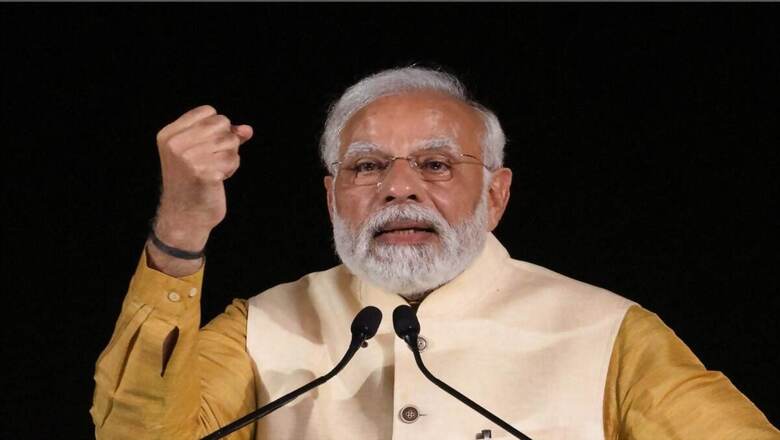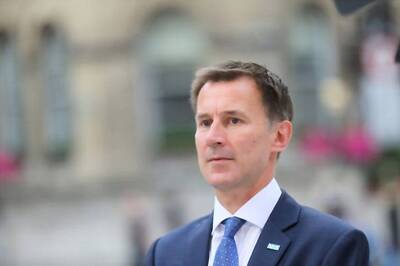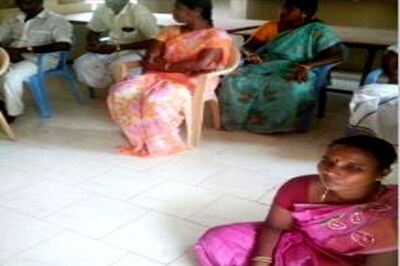
views
Tuberculosis (TB) continues to claim over 4,100 lives every day and half of this global burden is in G20 countries. The emergence of drug resistance is an added challenge, with some estimates suggesting an increase of 20 percent annually in the last decade, in patients with newly detected Multi-Drug Resistant Tuberculosis (MDR-TB). It was in 2018 that Prime Minister Narendra Modi gave the call to end TB in India by 2025, five years ahead of the Sustainable Development Goals (SDG) target.
As noted by the World Health Organisation (WHO), India is the only country in the world to conduct its own National Prevalence Survey for estimating the true burden of the disease. Based on the results of the Survey, interventions are being prioritised in high-prevalence states with an emphasis on screening vulnerable populations such as the elderly, malnourished and diabetics.
Private sector engagement, active case finding, decentralization of services through the Ayushman Bharat Health and Wellness Centres, technology use and community engagement have emerged as pillars of India’s fight against TB. Stakeholders from every sphere of society – corporates, elected representatives, individual citizens – have been called upon to adopt TB patients and provide them with the necessary social and nutritional support. Mobile technology has been leveraged for monitoring TB patients as well as for creating awareness about the disease, its symptoms and treatment options.
Undoubtedly, the Covid pandemic had a serious impact on TB programs, especially in high-burden countries. India launched various initiatives over the last few years to turn this crisis into an opportunity. Bi-directional screening for TB in Covid patients and vice versa was initiated. Clinical management guidelines for Covid were updated to encourage patients to test for TB if they had a persistent cough. Door-to-door TB detection campaigns were also undertaken. Last year, the President launched the Ni-kshay 2.0 Portal for motivating donors to support TB patients. As a consequence of these efforts, India achieved its highest-ever notification of 24.22 lakh TB cases in 2022, compared to 14 lakh in 2013.
Perhaps the biggest leap for India during the pandemic years was with respect to digital innovation. As a result, it is expected that point-of-care screening for TB will become much faster and more scalable through the use of Artificial Intelligence (AI). While it typically takes several hours or even days, AI can reduce the time for screening patients for presumptive tuberculosis to minutes. AI can also help pick up TB in individuals with no obvious symptoms, thus curbing the silent spread of the disease. Since 2020, start-ups like Qure.ai have been deploying their AI software for TB screening, in partnership with government hospitals and public health centres.
Sharing technological know-how for combating TB is an important contribution that India can make during its G20 Presidency. But there are other elements too. Industry, civil society and citizens collectively referred to as the Ni-kshay Mitras have contributed over Rs 1,000 crore for the betterment of TB patients in India. This is perhaps the largest community effort in the world for TB and a true example of Jan Andolan (people’s movement) and Jan Bhagidari (people’s partnership). Further, India is the only country in the world to undertake a Sub-National Certification exercise, in which a novel scientific method is used for verifying the progress made by districts towards TB elimination. Significant innovations for tackling TB have emerged from states across India related to every dimension of the 5T (Trace, Test, Track, Treat and Technology) approach which was popularized during the pandemic.
Health Ministers of the G20 launched a “Call to Action on Financing for Tuberculosis Response” during Indonesia’s Presidency last year. This also marked the first time TB became a topic at the G20 meeting. India’s Presidency comes at a crucial time in the fight against TB. Cooperation among nations on more effective and shorter treatment regimens, diagnostics, vaccines as well as technological and operational know-how for addressing TB is more important now than perhaps ever before, for reversing the pandemic-related disruptions and accelerating progress towards global goals.
The author is the Director, Office of Vice Chairman, NITI Aayog. Views expressed are personal.
Read all the Latest Opinions here




















Comments
0 comment